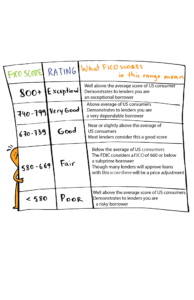In the world of investment, security is paramount. Investors seek avenues that offer not just potential returns, but also a shield against the uncertainties of the market. Deed of trust investments stand out in this regard, offering a unique layer of security backed by tangible assets – typically real estate properties. Let’s delve into how this collateral security transforms the landscape of investing, providing investors with peace of mind and confidence in their financial decisions.
Secured by Tangible Assets:
Deed of trust investments involve lending money to borrowers, who use real estate properties as collateral for the loan. Unlike some other forms of investment, where the underlying assets may be intangible or subject to market volatility, deed of trust investments are firmly rooted in the physical realm. This means that in the event of default by the borrower, investors have a tangible asset to fall back on – the property itself.
Reduced Risk and Enhanced Stability:
The presence of collateral fundamentally alters the risk profile of deed of trust investments. While no investment is entirely without risk, the inclusion of tangible assets as security significantly reduces the level of risk compared to other investment types. Even in the face of economic downturns or borrower defaults, investors have recourse to the underlying property, mitigating potential losses.
Moreover, the stability offered by collateral-backed investments can help investors weather turbulent market conditions with greater resilience. Real estate, as an asset class, has historically exhibited lower volatility compared to stocks or bonds. By incorporating deed of trust investments into their portfolios, investors can introduce a layer of stability that serves as a buffer against market fluctuations.
Peace of Mind for Investors:
Perhaps the most compelling aspect of collateral security in deed of trust investments is the peace of mind it provides to investors. Knowing that their investment is backed by a tangible asset instills a sense of confidence and assurance. Even in uncertain times, investors can take solace in the fact that their financial interests are protected by the value of the underlying property.
This peace of mind extends beyond mere financial considerations. It engenders a sense of trust and stability in the investment process, fostering long-term relationships between investors and borrowers. Investors can approach deed of trust investments with a clarity of purpose, knowing that their capital is working towards tangible outcomes – the acquisition, development, or improvement of real estate properties.
In conclusion, collateral security lies at the heart of deed of trust investments, anchoring them in a foundation of stability and reliability. By leveraging tangible assets as collateral, investors can mitigate risk, enhance stability, and gain peace of mind in their investment endeavors. As the investment landscape continues to evolve, the importance of collateral security remains unwavering, offering a beacon of stability amidst the ebb and flow of financial markets.



















